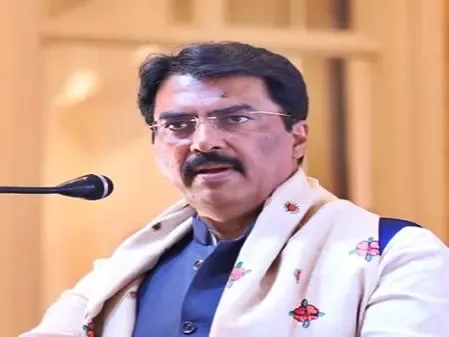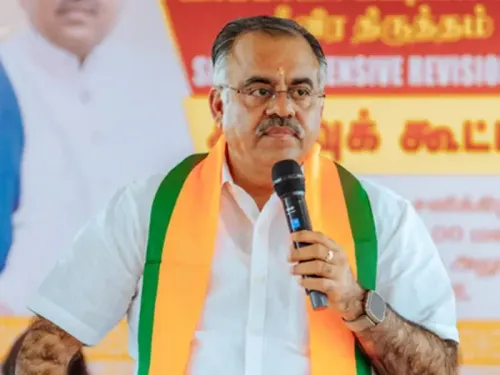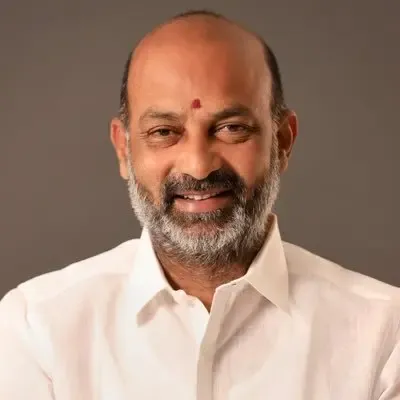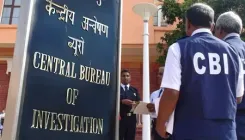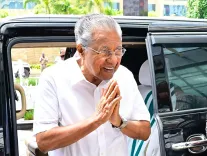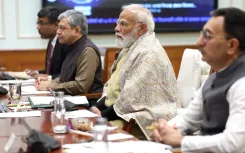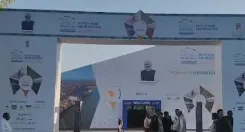Is Pakistan Intimidating Balochis During Protests?
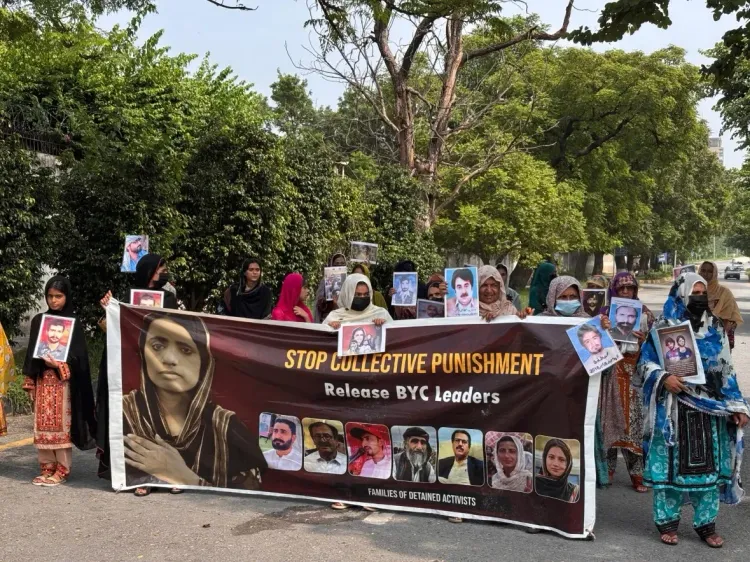
Synopsis
Key Takeaways
- Baloch Yakjehti Committee protests highlight ongoing human rights issues.
- Protestors face harassment and surveillance from authorities.
- The situation endangers women's and children's health in extreme heat.
- Calls for justice and accountability are vital for the Baloch people.
- International attention is needed to address these human rights violations.
Islamabad, July 29 (NationPress) After two weeks of the sit-in outside the National Press Club in Islamabad, the Baloch Yakjehti Committee (BYC) has accused the Pakistani state of targeting and surveilling Baloch families.
In a statement issued on Tuesday, the rights organization claimed that Pakistani authorities have intensified their efforts to isolate, intimidate, and silence the Baloch community, despite the protest advocating for the release of BYC leaders and an end to enforced disappearances.
The BYC highlighted that the route to the Press Club remains blocked while intelligence agencies continue to profile protest participants. They criticized the authorities for denying Baloch individuals the chance to establish a camp, leading to several women and children fainting daily from the oppressive heat. The BYC reiterated that the Baloch people will not disperse "until they are heard and until justice prevails."
The ongoing demonstration aims to secure the release of BYC leaders and put a stop to enforced disappearances in Balochistan. The BYC has called upon journalists, human rights advocates, and the general public to support the Baloch community. During the protest, Baloch women displayed images of their missing family members along with banners depicting BYC leaders, including Mahrang Baloch, with messages demanding, "Stop Collective Punishment. Release BYC Leaders."
In a statement posted on X, BYC remarked, "Day 14 - Islamabad Sit-In: Two full weeks into the peaceful gathering outside the National Press Club, Baloch families continue to endure systematic harassment and surveillance by the Pakistani state. Despite their demands for the release of Baloch Yakjehti Committee (BYC) leaders and an end to enforced disappearances, authorities have increased their efforts to isolate, intimidate, and silence them. The road to the Press Club stays sealed, with buses and barricades obstructing the area, not for public safety, but to shield grieving mothers and children from public scrutiny."
"Intelligence agencies are actively profiling participants. Male students are being recorded, identity cards are scrutinized, and families are tracked back to their temporary residences. Despite the sweltering heat, families are still denied the opportunity to establish a camp. With no shade available, numerous women and children faint daily due to heat exhaustion. Previously, they braved flooded conditions without shelter. Nevertheless, the state continues to deny them basic rights. Yet these families remain steadfast, refusing to leave until they are heard and until justice is served. We urge journalists, human rights defenders, civil society members, and conscious citizens: Stand with them. Visit them. Amplify their voices. Break the silence," the statement continued.
Amid the ongoing protests against enforced disappearances in Islamabad, a 15-year-old Baloch adolescent was forcibly abducted by Pakistani security forces from Kech district in Balochistan. On Tuesday, Paank, the Baloch National Movement's Human Rights Department, reported that on July 24, 15-year-old Qamber Fida was taken from his home in the Tump tehsil of Kech district in Meerabad.
"His abduction without charge or due process represents a clear violation of international human rights law and qualifies as a crime under the definition of enforced disappearance," stated the rights organization.
Paank strongly condemned the "ongoing crimes against humanity" occurring in Balochistan, including "arbitrary detentions, disappearances, and suppression of dissent."
The rights group urged the Pakistani authorities to immediately and unconditionally release Qamber Fida and guarantee his safety, stating that "all enforced disappearances must cease, and those accountable must be held responsible." "The rights to life, liberty, and security must be upheld without exception. Baloch lives matter, and the international community must not remain silent," Paank asserted.


